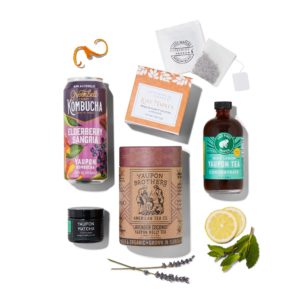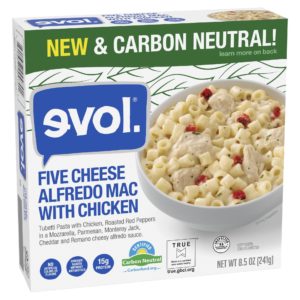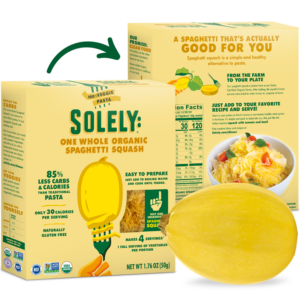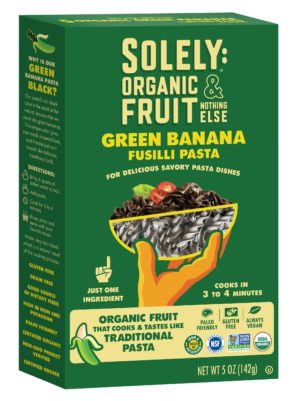Top food trends strive to provide nutrition, novelty
It’s been a tough couple of years for consumers around the world. Faced with an ongoing health crisis, political volatility, rising inflation and climate concerns, it’s no wonder purchasing patterns are shifting.
Today’s consumers continue to look for ways to save money, choosing lower-priced items and opting to cook at home rather than dine out. At the same time, trends show they’re still looking for new experiences and food that supports physical well-being while caring for the planet. An evaluation of the latest trends not only reveals the drivers behind consumer’s decisions, but also points to ways in which brands can successfully meet their demands.
According to a recent report from Innova Market Reports, 62% of consumers reported a noticeable rise in the cost of food and beverages. As a result, many are switching from costlier brands, opting instead for simple, affordable and nutritious products. The report outlines key behavior changes, including buying bulk, opting for private labels, cooking from home and reducing spending on luxury items. To meet consumer demand, manufacturers must innovate to get maximum value from raw materials and the production process. Doing so could help them stay on top of another timely trend: the introduction of new climate-conscious products.
Beyond affordability, trend reports from Whole Foods and Fruit Logistica point to experimentation with novel flavors and international foods as the next big thing in food.

According to its most recent trends report, Whole Foods expects yaupon to become a popular favorite in 2023, for example. Yaupon is a holly bush found in the southeastern U.S. and America’s only native caffeinated plant. The plant has a mild, earthy flavor. Trend-spotters have even seen it used by bartenders in experimental cocktails.
Fruit Logistica’s annual trends report, released at the annual trade event in Berlin, highlighted several unique vegetable products as possible trend-setters for 2023. Caulilini, an Asian- style baby cauliflower with long edible stems and blond, open florets, was introduced recently to the U.S. market. Mann’s Packing describes Caulilini as “sweetly succulent” in flavor and “perfectly imperfect” in shape.
“Trademarked products like these Caulilini baby cauliflower stems offer the market something new and exciting,” said Fruit Logistica’s trends report.
Caulilini wasn’t the only cauliflower product highlighted at Fruit Logistica, though. At the event fairgrounds, visitors were asked to vote on their favorite fruit and vegetable innovations. Syngenta Seeds was awarded a bronze Innovation Award for its new “eat-it-all” cauliflower, called iStem.

iStem is unique in that it’s the first edible stem cauliflower, a feature that reduces food waste. Its sweet, nutty curds are high in fiber and vitamin C, and can be eaten whole with no preparation.
As climate consciousness comes into focus, more brands are working to shrink the environmental footprint of the products they produce. Many are putting their sustainability efforts front and center, using those efforts as clear marketing for consumers who are looking for products that are in line with their core values.
Innova Market Reports listed “farming for the future” as one of its 2023 food trends, which ties right into conscientious consumption. According to the report, the public is increasingly curious about innovative technologies such as vertical and regenerative farming. Today’s consumers want to know where their food comes from, as location is intrinsically tied to concerns around health, sustainability and waste.
“At Innova, we have seen a considerable consumer demand for value redefined throughout the supply chain, with creative and flexible approaches to the use of technology and reducing waste proving pivotal,” said Lu Ann Williams, Global Insights director at Innova. “With financial concerns a dominating factor, 2023 is a significant year for new developments that answer these growing demands.”
The annual Whole Foods Market survey forecast a similar trend for 2023. The report also noted considerable growth in the number of brands that are trying to improve the impact of food and beverage production. One of the products the report highlighted was Evol Mac and Cheese Conagra, which carries a carbon-neutral label. It is one of eight Evol products to carry such a label.

“Evol’s philosophy has always been rooted in making great tasting food while doing what’s right,” said Jill Dexter, vice president, Better for You and Family Meals, Conagra Brands. “The certified carbon neutral status of these eight frozen meals is a visible step in our journey to help protect the environment.”
U.S. fruit and vegetable processor Pacific Coast Producers (PCP) is working towards more climate-conscious branding as well. The company recently invested in steam peeling technology for its tomato line. When chemicals are used to peel skin from tomatoes, the peel becomes a waste product. The introduction of steam peeling technology has allowed PCP to use the byproduct in sauces and pastes, thereby reducing waste.
Converting to steam peeling also saves on water, said Tami Iverson, director of marketing and communications at Pacific Coast Producers.
“We float the tomatoes in water and we use water to empty out the bins when the tomatoes come into the cannery,” she explained, adding that being able to repurpose water lowers their overall consumption. “It also helps with the quality of the tomato. We have better texture and better color when we do the steam peeling. It’s just a better way all around for us to peel the tomatoes.”

Currently, 100% of PCP’s retail tomato products are steam peeled. The company is moving towards 100% steam peeled product for its foodservice clients as well.
The plant-based sector has seen rapid growth in recent years, which is good news for fruit and vegetable processors. But it’s not just products that replace meat that are attracting attention. Increasingly, consumers are interested in products that incorporate vegetables in new and innovative ways.
According to Innova Market Reports, consumers are showing a growing appetite for culinary creativity, especially in “green gastronomy.” In fact, two-thirds of respondents to Innova’s global survey said they’d be interested in trying plant-based versions of traditional cuisine. Their needs have not gone unmet. Industry is responding by offering new ready-made meal options that use plant-based ingredients in unique ways.

A good example of this trend is Soley’s Organic Spaghetti Squash Pasta and its recently launched Green Banana Fusilli Pasta.
“These days, who has time to roast and cook a spaghetti squash for dinner?” said Simon Sacal, CEO of Solely.
“Vegetable pastas have become a favorite for people looking to incorporate more vegetables into their families’ diets, so this was a natural way for us to provide people with such a convenience.”
Soley’s newly launched Green Banana Fusilli Pasta is another example of rethinking how to better serve the growing plant- based and health food market.
“We seek to push the boundaries beyond what is just permissible, to what is genuinely enjoyable, simultaneously still satisfying our need for healthy food,” said Sacal.
“Organic Green Banana Fusilli Pasta does just that. It’s a completely different approach to traditional pasta but has the same taste and texture that one would expect.”

In fact, Soley’s new pasta products hit all the above-mentioned trends. Not only are they nutritional and novel, but they’re minimally processed, which means a climate-conscious choice as well.
Also for 2023, Whole Foods is bringing back its Market Trends Discovery Boxes for purchase, featuring buzzworthy products and ingredients.










